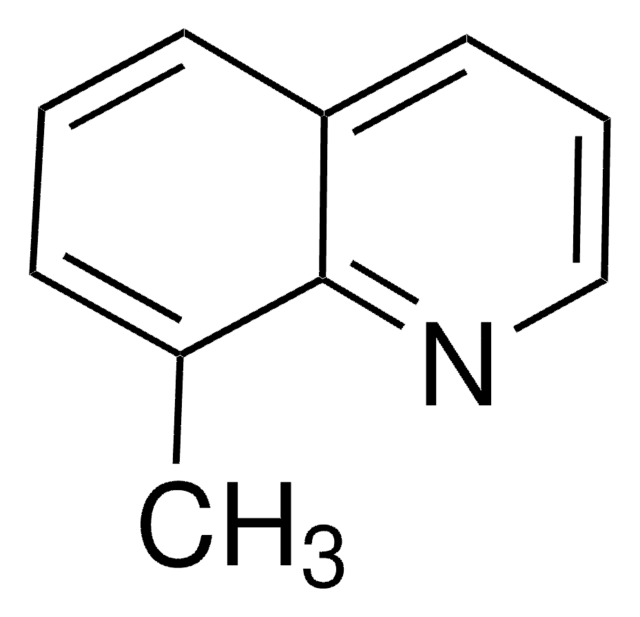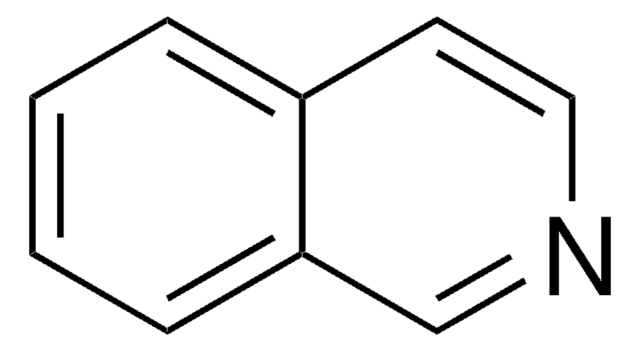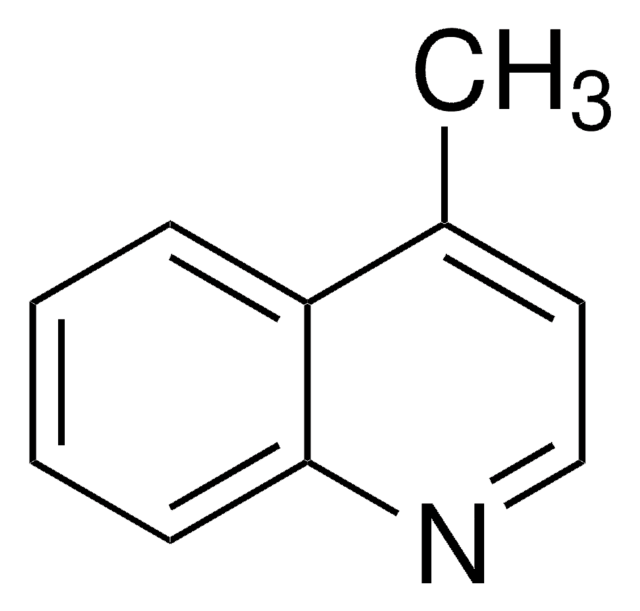All Photos(3)
About This Item
Empirical Formula (Hill Notation):
C9H11N
CAS Number:
Molecular Weight:
133.19
Beilstein:
116149
MDL number:
UNSPSC Code:
12352100
PubChem Substance ID:
NACRES:
NA.22
Recommended Products
Quality Level
Assay
98%
refractive index
n20/D 1.593 (lit.)
bp
113-117 °C/10 mmHg (lit.)
249 °C (lit.)
mp
9-14 °C (lit.)
density
1.061 g/mL at 25 °C (lit.)
SMILES string
C1CNc2ccccc2C1
InChI
1S/C9H11N/c1-2-6-9-8(4-1)5-3-7-10-9/h1-2,4,6,10H,3,5,7H2
InChI key
LBUJPTNKIBCYBY-UHFFFAOYSA-N
Looking for similar products? Visit Product Comparison Guide
Related Categories
Signal Word
Danger
Hazard Statements
Precautionary Statements
Hazard Classifications
Acute Tox. 3 Oral - Aquatic Chronic 3 - Carc. 1B
Storage Class Code
6.1C - Combustible acute toxic Cat.3 / toxic compounds or compounds which causing chronic effects
WGK
WGK 2
Flash Point(F)
176.0 °F
Flash Point(C)
80 °C
Personal Protective Equipment
dust mask type N95 (US), Eyeshields, Gloves
Choose from one of the most recent versions:
Already Own This Product?
Find documentation for the products that you have recently purchased in the Document Library.
Khalid M Alkharfy et al.
European journal of drug metabolism and pharmacokinetics, 40(3), 319-323 (2014-06-14)
Thymoquinone (THQ), the active constituent of Nigella sativa seeds, has demonstrated some potential pharmacological activities. The present study was designed to investigate the pharmacokinetic behavior of THQ following intravenous (IV) and oral (PO) administration using an animal model. THQ was
Arindam Chatterjee et al.
Bioorganic & medicinal chemistry, 22(22), 6409-6421 (2014-12-03)
Calpain mediated cleavage of CDK5 natural precursor p35 causes a stable complex formation of CDK5/p25, which leads to hyperphosphorylation of tau. Thus inhibition of this complex is a viable target for numerous acute and chronic neurodegenerative diseases involving tau protein
Our team of scientists has experience in all areas of research including Life Science, Material Science, Chemical Synthesis, Chromatography, Analytical and many others.
Contact Technical Service










